Use the below links to navigate to these sections of this page:
Introduction
Plastic materials are often specified in food and drug processing, handling, or packaging equipment. In order for these materials to be used, federal, state, or association regulatory requirements may have to be met. Requirements vary from organization to organization, so standards must be checked for each material, component or equipment configuration.
The following are brief descriptions of regulatory organizations, requirements, and standards that may apply to stock shape products (sheet, rod, tube and film) or components made from those materials.
Click any of the following icons to see materials by compliance.
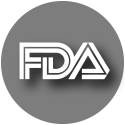
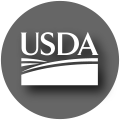
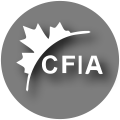
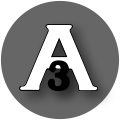
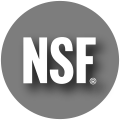
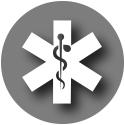
The Food and Drug Administration (FDA) is the regulatory agency of the United States government that is responsible for determining how materials may be used in contact with food products. The FDA participates in publication of The Federal Register, which contains The Code of Federal Regulations (CFR), a codification of the general rules established by the Executive departments and agencies of the Federal Government. The Code is divided into 50 titles which represent a broad subject matter.
Definitions for proper use of food contact materials are found in a series of regulations published annually under The Code of Federal Regulations (CFR) Title 21. Title 21 - Food and Drugs is composed of nine volumes, which are subdivided into Parts. Part 177 - Indirect Food Additives: Polymers lists standards for polymers acceptable for use in components of single and repeat use food contact surfaces. Part 178 - Indirect Food Additives: Adjuvants, Production Aids, and Sanitizers includes standards for certain polymer additives. Parts are divided into Sections identified by chemical family which indicate physical, chemical, and compositional requirements, as well as acceptable service conditions for food contact. Regulations generally limit the extractable substance when exposed to selected solvents.
Within the FDA, there is no government-operated process of inspection of plastics produced for food contact use. Rather, the FDA in their regulations provides certain specifications regarding composition, additives, and properties. A material which meets these standards can then be stated as FDA COMPLIANT. End users should note that it is their responsibility to use the product in a manner compatible with FDA guidelines.
For further information on FDA regulations, contact the U.S. Food & Drug Administration, Office of Premarket Approval HFS-216, 200 C. Street SW, Washington, DC 20204, by phone at (202) 418-3080, or visit them at http://www.fda.gov on the Internet.

Click HERE to view FDA compliant plastic materials.
Back to Top of Page
The United States Department of Agriculture (USDA) Food and Safety and Inspection Service regulates manufacturing, packaging and handling practices in the agricultural food industry. The USDA has jurisdiction over equipment used in meat and poultry processing plants. Materials used in this equipment are approved on an individual basis.
For a product to be USDA COMPLIANT, components used in direct food contact must be documented as to their compliance with the Federal Food, Drug and Cosmetic Act ("FDA Compliance") by a written letter of guaranty from the manufacturer to ensure that they are formulated in compliance with appropriate regulations. Therefore, USDA requirements for material approval are satisfied by a certification of FDA compliance (see FDA section above).
For further information on USDA regulations, contact U.S. Department of Agriculture, Compounds and Packaging Branch, Product Assessment Division, Building 306 BARC-East, Beltsville, MD 20705. By phone; (301) 504-8566. or visit them at http://www.usda.gov on the Internet.

Click HERE to view USDA compliant plastic materials.
Back to Top of Page
The Canadian Food Inspection Agency (or CFIA) is a regulatory agency that is dedicated to the safeguarding of food, animals, and plants, which enhance the health and well-being of Canada's people, environment and economy. The agency was created in April 1997 by the Canadian Food Inspection Agency Act for the purpose of combining and integrating the related inspection services of three separate federal government departments: Agriculture and Agri-Food Canada, Fisheries and Oceans Canada, and Health Canada. The establishment of the CFIA consolidated the delivery of all federal food safety, animal health, and plant health regulatory programs.
Visit them at http://inspection.gc.ca

Click HERE to view CFIA compliant plastic materials.
Back to Top of Page
3A-Dairy was founded in 1920's by three dairy related associations in the interest of creating sanitary standards and practices for equipment and systems used to process milk and milk products, and other perishable foods. Today, the 3-A Sanitary Standards Committees are composed of representatives from many government agencies and industry.
Standard Number 20-20, 3-A Sanitary Standards for Multiple-Use Plastic Materials Used as Product Contact Surfaces for Dairy Equipment has been developed to %22_cover the material requirements of plastics for multiple-use as product contact and/or cleaning solution contact surfaces in equipment for production, processing and handling of milk and milk product(s).%22 Test criteria for approval of plastic materials include cleanability, bacterial treatment, repeat use conditions, and FDA compliance. Samples are subjected to chemicals representative of dairy clearing compounds and measured for weight change and changes in surface appearance.
To display the 3A-Dairy symbol, equipment manufactures must use only 3A Dairy approved plastic materials. Using unapproved materials while displaying the 3A symbol can result in the loss of the right to display the symbol. Many states including CA and WI (the two largest dairy food suppliers) have incorporated the 3A standard into their state inspection standards.
The 3A-Dairy organization annually publishes a list of approved plastic materials. Important Note: Materials are approved by product, grade, form, and supplier, and not by generic material.
For further information regarding 3-A Sanitary Standards, contact IAFIS (International Association of Food Industry Suppliers), 1451 Dolley Madison Boulevard, McLean, Virginia USA 22101-3850, by phone at (703) 761-2600, or visit them at http://www.iafis.org on the Internet.

Click HERE to view 3A-Dairy approved plastic materials.
Back to Top of Page
NSF International, formerly known as the National Sanitation Foundation, is an independent, not-for-profit, neutral agency that sets standards for all direct and indirect drinking water additives. Manufacturers who provide equipment displaying the NSF symbol have applied to the NSF for device approval to a specific standard. The approval is issued for the finished product (device) in a specific use (application). For example, a commercial ice machine manufacturer will obtain NSF approval for the ice machine (device to Standard - application).
To obtain device approval, all components within the device must comply with the Standard. Establishing compliance of the equipment's components can be accomplished in one of two ways:
The component has been tested to the Standard by the component supplier and is certified as such.
The equipment manufacturer must supply documentation that the component meets the Standard, If any testing is required, it must be completed by the equipment manufacturer.
The NSF maintains hundreds of Standards, but three standards which apply to plastic products are:
# 51 - Plastics in Food Equipment : defines the material requirements for food protection, considering extractables using FDA guidelines
# 61 - Drinking Water System Components -- Health Effects : covers indirect drinking water additives and addresses health and toxicity effects of plastic resins.
# 14 - Manufacture of Fittings and for Accessories other than Pipe Fittings : applies to thermoplastic and thermoset plastics piping system components in contact with potable water and primarily addresses physical properties of plastic components in piping and plumbing systems.
For further information on NSF Standards, contact NSF International, 3475 Plymouth Road, P.O. Box 1301140, Ann Arbor, MI 48113-0140, by phone at (800) 673-7275, or visit them at http://www.nsf.org on the Internet. Standards can also be ordered on-line.

Click HERE to NSF approved plastic materials.
Back to Top of Page
The United States Pharmacopeia (USP) is a voluntary, not-for-profit organization that promotes the public health by establishing and disseminating officially recognized standards of quality and authoritative information for the use of medicines and other health care technologies by health professionals, patients, and consumers.
USP is responsible for establishing legally recognized product standards for drugs and other health related articles in the United States. In the 1960's, methodology and requirements were established for plastic materials used for pharmaceutical containers and closures, and were subsequently adopted by medical device manufacturers. USP tests measure biological reactivity of plastics in contact with mammalian cell cultures (in-vitro) and via implantation and injection of extractables into laboratory animals (in-vivo). Plastics are classified into one of six classes, each requiring different levels of testing. Class VI requires the most extensive testing.
USP does not regulate compliance or certification of plastics tested according to their published methods. The FDA has adopted some the tests specified by USP for regulation of medical devices.
For further information on USP test methods, Reference USP 23 - NF 18, Chapters 87 - 88 and contact USP at U. S. Pharmacopeia, 12601 Twinbrook Parkway, Rockville, MD 20852, by phone at (800) 822-8772, or visit them at http://www.usp.org on the Internet.

Click HERE to view USP Class VI plastic materials.
Back to Top of Page
The American Society for Testing and Materials (ASTM) is a not-for-profit organization, which provides a forum for producer, users, and consumers to establish standards for materials, products, systems, and services. ASTM standards are developed voluntarily and used voluntarily. Standards become legally binding only when a government body references them in regulations, or when they are cited in a contract. ASTM standards referenced in this Guide pertain to characteristics of plastic resins prepared for property testing via injection molding. Property values listed in these Standards are not always representative of extruded shapes.
For further information on ASTM Standards, contact ASTM, 100 Barr Harbor Drive, West Conshohocken, PA 19428-2959, by phone at (610) 832-9500, or visit them at http://www.astm.org on the Internet.
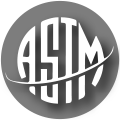
Back to Top of Page
Underwriters Laboratories (UL) is an independent, not-for-profit organization chartered %22to establish, maintain, and operate laboratories for the investigation of devices, systems, and materials with respect to hazards affecting life and property.%22 %22Listing%22, the most widely recognized of UL's services, means that samples of a product have been evaluated, and they comply with UL Standards. Products tested and recognized by UL are listed in a Component Directory. Plastic Materials can be evaluated per the following UL Test Methods:
UL746A Polymeric Materials - Short Term Property Evaluations
UL746B Polymeric Materials - Long Term Property Evaluations
UL746C Polymeric Materials - Use in Electrical Equipment Evaluations
UL94 Test for Flammability of Plastic Materials
These tests are described in detail in Plastics Recognized Component Directory - Polymeric Materials, Processes and Systems, available from UL.
For further information, contact Underwriters Laboratories, 333 Pfingsten Road, Northbrook, IL 60062-2096, by phone at (847) 282-8800, or visit them at http://www.ul.com on the Internet.
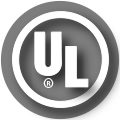
Back to Top of Page